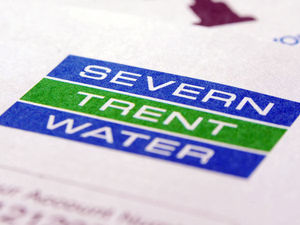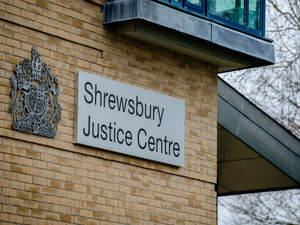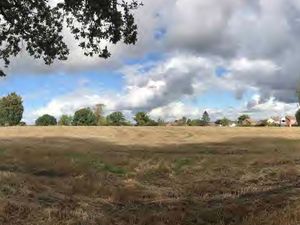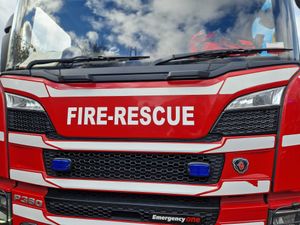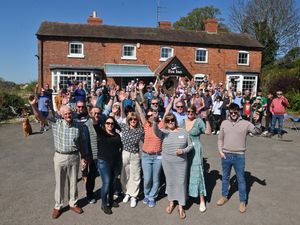Shropshire quarry's rock builds Bahrain F1 race circuit
It is one of the most exotic venues on the Formula 1 calendar – set in the middle of the desert with a circuit surrounded by palm trees.
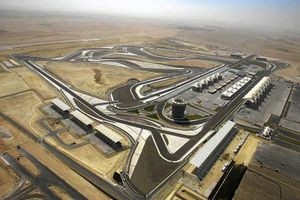
But few people are aware that when superstars like Lewis Hamilton, Fernando Alonso and Jenson Button take to the starting grid for the Bahrain Grand Prix on Sunday they will be racing on a track which originated right here in Shropshire.
The surface of the track at the Bahrain International Circuit is made of crushed rock called Graywacke aggregate, which was shipped to Bahrain from the Bayston Hill Quarry near Shrewsbury.
The surface material is highly acclaimed by circuit bosses and F1 drivers because of the high level of grip it offers.
In fact, it won such plaudits that the race track builders recommended it to those constructing the as Marina Circuit for the Abu Dhabi Grand Prix.

But while the quarry's customers in Bahrain and Abu Dhabi demanded a very strict specification, the product is essentially the same as is found on the M6 toll road – which features 75,000 tonnes of Bayston Hill aggregate.
Bayston Hill Quarry, which is operated by Lafarge Tarmac, is one of the only quarries in the UK with reserves of gritstone – or greywacke.
It has the largest reserves in England or Wales.
The material is of prime importance to UK road infrastructure projects, with Bayston Hill supplying up to 800,000 tonnes each year.
During the 16 months of construction of the 5.4km (3.4 miles), US$150 million Bahrain International Circuit engineers had to pour an average of 650 tons of asphalt per day to complete the circuit in time.
An amazing 12,000 tons of stone was used for the track, 3,300 tons of which came from Bayston Hill, with the remainder from Malaysia.
A spokeswoman for Lafarge Tarmac said: "We supplied approximately 3,300 tonnes of stone in one tonne bags.
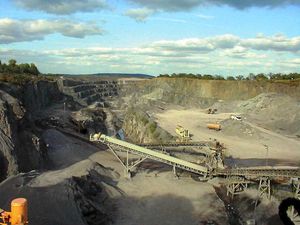
"It was sent to the Middle East by lorry, to the Thames and, from there, by container ship , as one shipment.
"Bayston Hill produces around 300 tonnes of stone per hour, but the client had a very specific requirement around the size – 11mm, as opposed to standard 10mm, or 8mm – so we had to re-screen the materials to ensure product was spot on.
"Because of this, it took us around two to three weeks to produce the materials."
The track, designed by German race circuit designer Hermann Tilke, was the first ever F1 racing circuit located in the desert and work included the excavation of 730,000m3 of rock and the construction of six different individual race tracks.
It features 15 corners and over the 57 laps of the race, the drivers will cover 192 miles.
Many of the teams also used the circuit to test their cars ahead of the start of the F1 racing season.
The F1 cars took to the track for free practice yesterday, ahead of qualifying today and the race itself, which takes place tomorrow. Speaking ahead of tomorrow's race, Britain's Lewis Hamilton said: "The Bahrain Grand Prix is one of the hottest and most demanding races of the year."
This year, for the first time, the race will take place at night, so temperatures should be cooler.
Fellow Brit Jenson Button said: "I've had lots of good performances here, and I really enjoy the challenge the circuit presents.
"You always feel like you can get a little bit more out of yourself, and the car, which makes it a difficult but rewarding track on which to drive."
Lotus driver Pastor Maldonado added: "Bahrain is a good circuit.
"We've been there in the pre-season and I think all the teams will be happy to return, especially for the weather and the type of track.
"I would say it is a 'complete' circuit because it has a mix of high, medium and low speed turns, plus good sequences of corners.
"So it's a good venue to test at, which is exactly what we need to evaluate our new developments."
As well as providing the rock for Bahrain, Bayston Hill Quarry is in demand for road construction and repairs here in the UK.
About half of the output from the quarry, which was bought by Tarmac from a private owner in 1972, is delivered within the Shropshire area.
The rest goes to other major road projects under construction elsewhere in the country.
The quarry was originally set up to supply ballast for railways.

